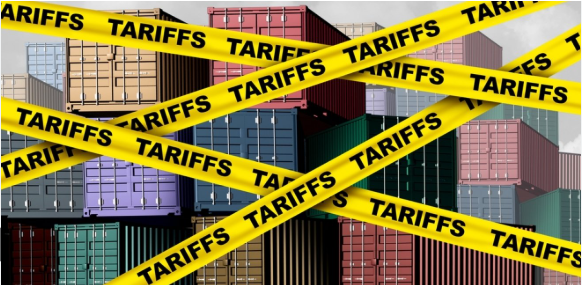Canadian exporters have largely avoided the brunt of former U.S. President Donald Trump’s tariffs, thanks to the stabilizing role of the Canada-U.S.-Mexico Agreement (CUSMA), according to RBC economists Nathan Janzen and Claire Fan. In a recent analysis, they describe CUSMA as a key safeguard that has preserved the flow of cross-border trade even amid unpredictable U.S. trade policies.

Also Read: High Growth Canadian Stocks 2025
The economists argue that the deeply integrated North American supply chains make the trade pact too valuable to dismantle. “The fact that the CUSMA backstop has broadly held through repeated broader rounds of U.S. tariff announcements should serve as an implicit acknowledgement that all parties see value in the agreement,” the RBC note states.
Also Read: Stock Investment Canada for Beginners
One of the key findings is that nearly 20% of the value of manufactured goods the U.S. imports from Canada originates from American exports earlier in the supply chain. This means that slapping tariffs on Canadian goods would, in effect, penalize U.S. producers by increasing their own input costs. As a result, Janzen and Fan believe this interdependence makes it more likely that the agreement will be renewed in 2026.
RBC estimates that the average effective tariff rate for U.S. importers could rise to 15% — the highest since the 1930s — and potentially exceed 20% if CUSMA exemptions were removed. This would disproportionately harm U.S. manufacturers, who rely heavily on industrial imports from Canada and Mexico, rather than consumer goods.
The economic stakes are high. Tariff-related uncertainty has already affected Canada’s economy, and U.S. manufacturing employment had dropped by 100,000 jobs as of July, year-over-year. States with large manufacturing sectors like Michigan, Ohio, and Iowa are seeing rising unemployment.
Canada remains the top export destination for 32 U.S. states, highlighting the importance of open trade to American industry. CUSMA, which replaced NAFTA in 2020, includes a scheduled review in 2026 to determine whether the deal will be extended to 2042. Any of the three countries can withdraw with six months’ notice, but an early extension could enhance stability.
While RBC sees the ongoing commitment to CUSMA as a positive signal, others are more cautious. A report from the C.D. Howe Institute’s Trade Crisis Working Group warns that the current uncertainty is already hurting Canadian businesses, with many delaying investment decisions due to the unclear future of the agreement.
Sign Up For our Newsletters to get latest updates







zb9js7